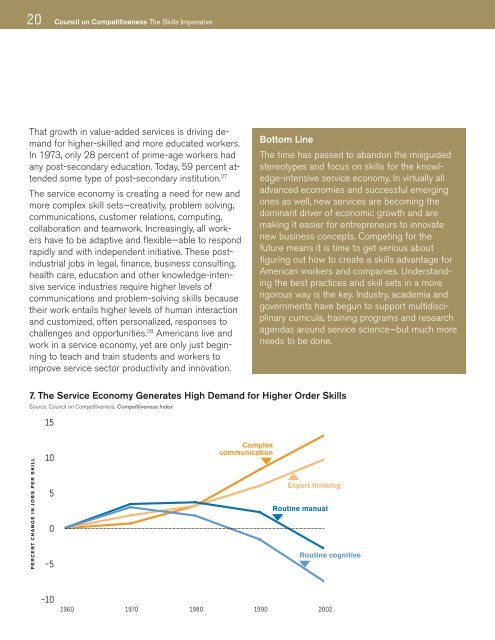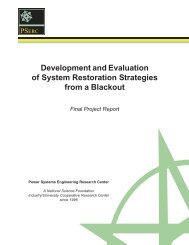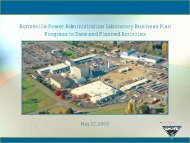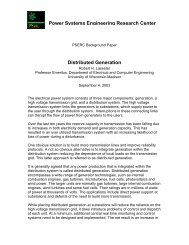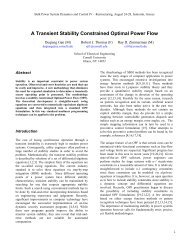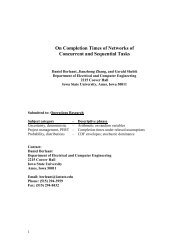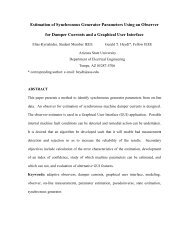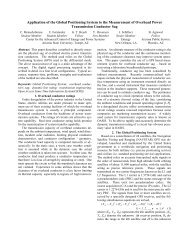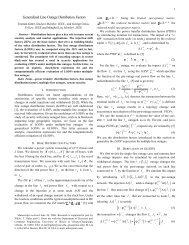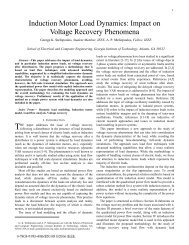Thrive: The Skills Imperative - Power Systems Engineering ...
Thrive: The Skills Imperative - Power Systems Engineering ...
Thrive: The Skills Imperative - Power Systems Engineering ...
Create successful ePaper yourself
Turn your PDF publications into a flip-book with our unique Google optimized e-Paper software.
20<br />
Council on Competitiveness <strong>The</strong> <strong>Skills</strong> <strong>Imperative</strong><br />
That growth in value-added services is driving demand<br />
for higher-skilled and more educated workers.<br />
In 1973, only 28 percent of prime-age workers had<br />
any post-secondary education. Today, 59 percent attended<br />
some type of post-secondary institution. 27<br />
<strong>The</strong> service economy is creating a need for new and<br />
more complex skill sets—creativity, problem solving,<br />
communications, customer relations, computing,<br />
collaboration and teamwork. Increasingly, all workers<br />
have to be adaptive and flexible—able to respond<br />
rapidly and with independent initiative. <strong>The</strong>se postindustrial<br />
jobs in legal, finance, business consulting,<br />
health care, education and other knowledge-intensive<br />
service industries require higher levels of<br />
communications and problem-solving skills because<br />
their work entails higher levels of human interaction<br />
and customized, often personalized, responses to<br />
challenges and opportunities. 28 Americans live and<br />
work in a service economy, yet are only just beginning<br />
to teach and train students and workers to<br />
improve service sector productivity and innovation.<br />
Bottom Line<br />
<strong>The</strong> time has passed to abandon the misguided<br />
stereotypes and focus on skills for the knowledge-intensive<br />
service economy. In virtually all<br />
advanced economies and successful emerging<br />
ones as well, new services are becoming the<br />
dominant driver of economic growth and are<br />
making it easier for entrepreneurs to innovate<br />
new business concepts. Competing for the<br />
future means it is time to get serious about<br />
figuring out how to create a skills advantage for<br />
American workers and companies. Understanding<br />
the best practices and skill sets in a more<br />
rigorous way is the key. Industry, academia and<br />
governments have begun to support multidisciplinary<br />
curricula, training programs and research<br />
agendas around service science—but much more<br />
needs to be done.<br />
7. <strong>The</strong> Service Economy Generates High Demand for Higher Order <strong>Skills</strong><br />
Source: Council on Competitiveness, Competitiveness Index<br />
<br />
PERCENT CHANGE IN JOBS PER SKILL<br />
<br />
<br />
<br />
<br />
Complex<br />
communication<br />
Expert thinking<br />
Routine manual<br />
Routine cognitive


